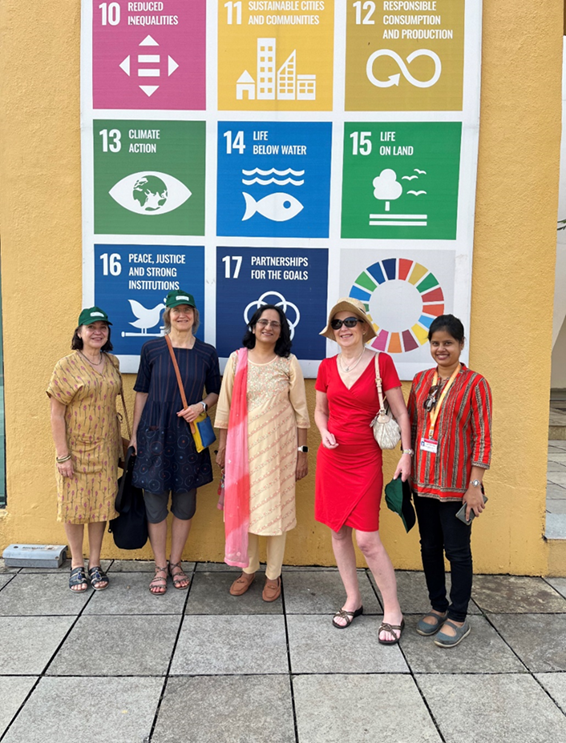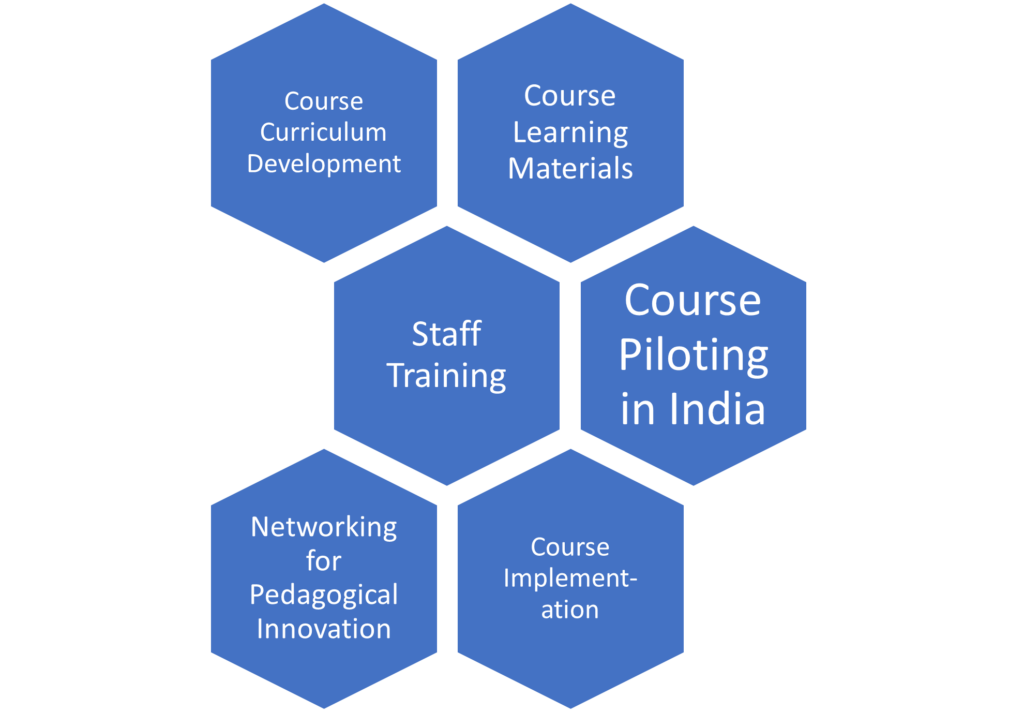Erasmus+ Capacity Building in Higher Education (CBHE) Project Co-LIFE involves eight universities – four from India and four from Europe. The project is developing Impact-Focused Entrepreneurship (IFE) education in higher education institutions to address social inequalities and environmental problems in India. The aim is also to create sustainable business-related job opportunities in India and strengthen intercultural relations between the EU and India.
The project was planned in the course of several years of collaboration between Indian and EU-based universities before receiving Erasmus+ project funding. This involved both local and national-level funding (e. g. AKKE funding as well as Seed funding from the Ministry of Education) which enabled networking with relative stakeholders, both in Europe and India, in order to get the right institutions involved in long-term educational collaboration. All actors felt that involving also companies and other relevant organisations to ‘tackle’ environmental and social challenges in local contexts in India was an important part of the planning and will be a crucial part of implementing the educational measures.
 The photo was taken during the project preparation stage in Goa, India at the Campus of the Goa Institute of Management (GIM), with actors from Finland and India. (Photo by bypassing student, permisssion for use given)
The photo was taken during the project preparation stage in Goa, India at the Campus of the Goa Institute of Management (GIM), with actors from Finland and India. (Photo by bypassing student, permisssion for use given)
In the project, the consortium will deliver an accredited impact-oriented entrepreneurship learning module (6 ECTS) – with Learning by Developing (LbD) pedagogy – and apply design thinking, service design and co-creation methods in the process. Students are also involved as developers in the process of creating the course and its learning materials, alongside with university staff, local companies and associated organisations. The project goals involve promoting social inclusion by involving relevant local stakeholders in the project’s network of collaborators. Additionally, the approach will develop intercultural relations between people and organisations in the EU and India and promote mutual cross-cultural understanding (see e.g. Gupta 2008). Laurea’s MBA students have already participated in creating relevant business cases for the Co-LIFE training module in the spring semester 2024 during the Service Design and Co-Creation in RDI Activities course.
The Project involves the following content work packages:
 Co-LIFE project work packages (designed by Co-LIFE Consortium).
Co-LIFE project work packages (designed by Co-LIFE Consortium).
In addition to Laurea, the project partners are: LAB University of Applied Sciences, Lahti, Finland (coordinator); Aarhus University, Department of Business Development and Technology, Herning, Denmark; Thomas More University of Applied Sciences, Mechelen, Belgium, and four (4) Indian higher education institutions: Ecole Intuit Lab (EIL), Mumbai, Maharashtra ; Goa Institute of Management (GIM), Sanquelim, Goa, India; Indian School of Development Management, New Delhi, Delhi, India ; Arch School of Design and Business, Jaipur, Rajasthan, India .
The project kicked off in Mumbai, India, in early 2024.
Laurea’s project team consists of Salla Kuuluvainen, Tiina Lehtosaari and Taina Vuorela.

Sources:
- Gupta, S. 2008. Understanding Indian culture, bridging the communication gap. London: GUPTA.
- Co-LIFE – Co-designing for impact-focused entrepreneurship 2022. Unpublished project plan.